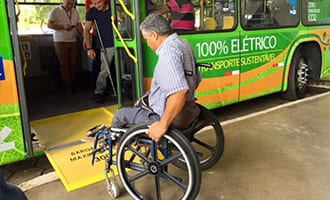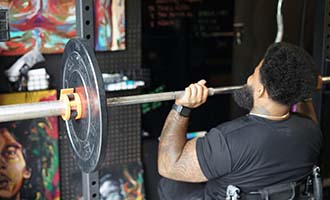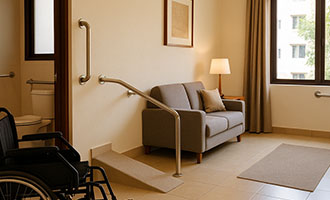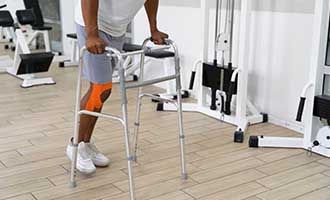The Role of Hydration in Health and Wellness
Understanding the Importance of Proper Hydration and Tips for Staying Hydrated, Especially for Wheelchair Users

Hydration is a fundamental aspect of health and wellness, impacting everything from physical performance to cognitive function. For wheelchair users, maintaining proper hydration is particularly important, as it supports overall health, aids in the management of specific conditions, and promotes a better quality of life. Here’s why hydration matters and how wheelchair users can stay properly hydrated.
1. Why Hydration Is Crucial
Water is essential for almost every bodily function. It helps regulate body temperature, lubricate joints, transport nutrients, and eliminate waste. For wheelchair users, staying hydrated can be even more critical due to the potential for certain complications, such as urinary tract infections (UTIs), constipation, and skin integrity issues. Proper hydration helps in managing these risks by supporting kidney function, promoting regular bowel movements, and keeping the skin healthy and resilient.
2. Hydration and Mobility
Mobility limitations can sometimes make it challenging to access fluids regularly, which can lead to dehydration. Dehydration can exacerbate mobility issues by causing muscle cramps, dizziness, and fatigue, making it even more important for wheelchair users to stay on top of their fluid intake. Ensuring that water is easily accessible throughout the day is a key strategy for preventing these issues.
3. Tips for Staying Hydrated
- Keep Water Accessible: One of the most effective ways to stay hydrated is to keep water within reach at all times. Consider using a water bottle with a straw or a hydration pack that can be attached to the wheelchair for easy access.
- Set Hydration Reminders: It can be easy to forget to drink water throughout the day, especially when busy. Setting reminders on a phone or using a hydration app can help maintain a regular drinking schedule.
- Incorporate Hydration into Daily Routine: Try to make drinking water a part of your daily routine. For example, drink a glass of water with each meal or after every bathroom break.
- Monitor Urine Color: A simple way to monitor hydration levels is by checking the color of urine. Pale yellow indicates proper hydration, while darker colors may signal the need for more fluids.
- Choose Hydrating Foods: Incorporate water-rich foods into your diet, such as fruits and vegetables. Foods like cucumbers, oranges, and watermelon are great options that contribute to daily hydration needs.
- Stay Hydrated in All Weather: Hydration needs can change with the weather. In hot or humid conditions, the body loses more water through sweat, increasing the need for fluids. Conversely, indoor heating in winter can be dehydrating, so it’s important to drink plenty of water year-round.
4. Hydration and Specific Health Conditions
Certain health conditions common among wheelchair users, such as kidney stones or pressure sores, require vigilant hydration management. Adequate water intake can help prevent kidney stones by diluting the minerals that form stones and reduce the risk of pressure sores by keeping the skin hydrated and healthy. In addition, staying hydrated can support circulation and reduce the risk of blood clots, which can be a concern for those with limited mobility.
5. The Impact of Dehydration on Mental Health
Dehydration doesn’t just affect physical health; it can also impact mental and emotional well-being. Symptoms of dehydration include headaches, confusion, and irritability, all of which can contribute to feelings of frustration or anxiety. Maintaining proper hydration can help keep these symptoms at bay, supporting better mood and cognitive function.
Conclusion
Hydration plays a vital role in overall health and wellness, particularly for wheelchair users who may face unique challenges related to fluid intake. By understanding the importance of hydration and implementing simple strategies to stay hydrated, wheelchair users can better manage their health, enhance their mobility, and improve their quality of life. Staying hydrated is a small but powerful step towards maintaining optimal health and well-being.
Related
-

In-Home Health Care Services in Mumbai Using the MobiCrew App
-

Fashion Forward: Style Tips for People with Limited Mobility
-

The Ultimate Guide to Choose the Right Walking Devices for Adults
-

Best Elderly Care Apps for Seniors in 2025
-

Top Benefits of Visiting a Physical Therapy Clinic
-

Beyond the Wheelchair: Why Emotional Support Is Just As Important As Physical Help
-

Understanding Spina Bifida: Symptoms, Types, and Early Detection
-

Tips to Choose the Right Physical Therapist for Your Needs
-

Understanding the Benefits of In-Home Elder Care for Loved Ones
-

Rolling Towards Peace
-

Wheels of Support
-

Get in the game
-

How Sport Rehabilitation in Mumbai Helps Athletes Bounce Back Stronger
-

How to Choose the Right Sports Rehab Treatment Clinic Near You
-

Breathing right can change your life
-

Why Routine Health Check-Ups Matter for Wheelchair Users
-

Sports Injury Prevention Strategies for Mumbais Active Youth
-

How to Choose Reliable Mobility Services at Home in Mumbai
-

Choosing the Right Care Taker Services in Mumbai for Your Needs
-

Physiotherapy tips for home
-

Top Qualities to Look for in Elderly Carers in Mumbai
-

Best Wheelchairs for Senior Citizens in Mumbai Buyers Guide
-

Stay in shape with Yoga
-

Slippery Roads Ahead: How to Keep Elderly Loved Ones Safe This Monsoon
-

Tips To Empower People with Limited Mobility
-

Rollin' in the Greens.
-

Beginners, chair cardio is the way to go!
-

Dating with a Disability: Navigating Love, Relationships, and Mobility Challenges
-

Benefits of Hiring a Companion for Elderly Care in Mumbai
-

Embracing Holistic Wellness: A Guide for Seniors and Individuals with Mobility Needs
-

Focus your mind to stay healthy
-

Best Physical Therapies in Mumbai for Post-Operative Recovery
-

The power of Pilates
-

Rolling Through the Rain: A Monsoon Safety Guide for Wheelchair Users
-

Finding the Perfect Health Service Provider: Tips for Elderly Care
-

Enhancing Sleep Quality for Wheelchair Users
-

Innovative Walking Assistance Devices for Adults
-

How to Help People with Disabilities: A Guide to Inclusive Practices
-

How Accessible Homes Create Truly Independent Living
-

Adaptive Fitness: Exercise Tips for Individuals with Limited Mobility
-

The Importance of Wheelchair Assistance for the Elderly









